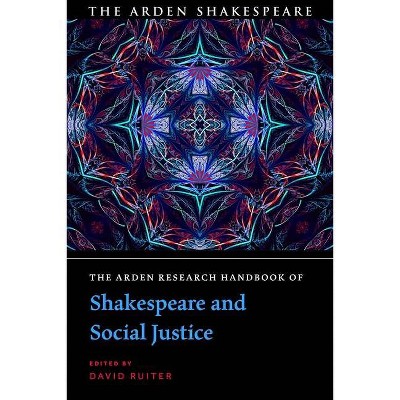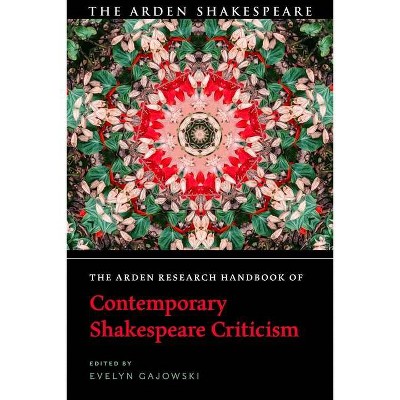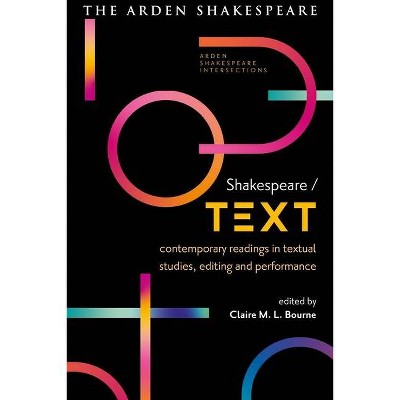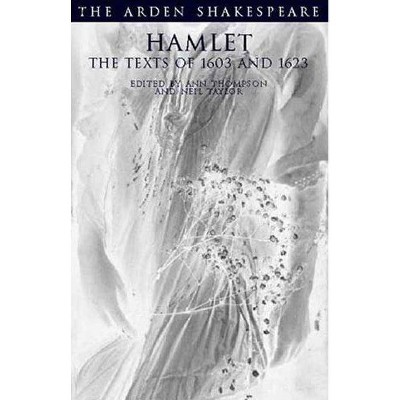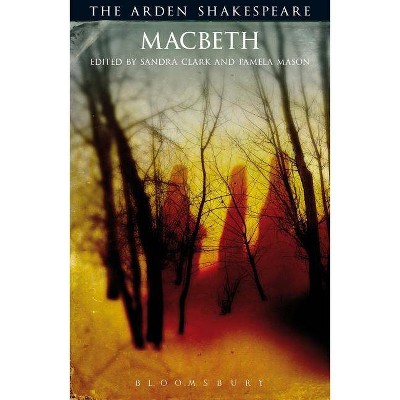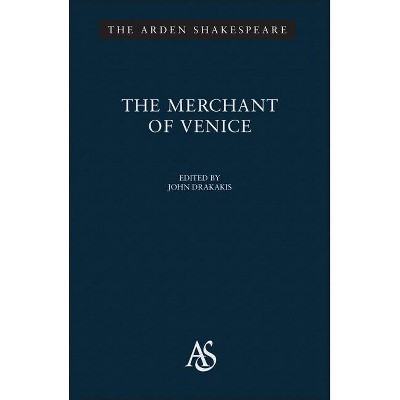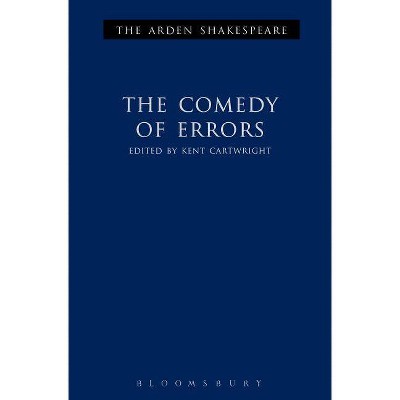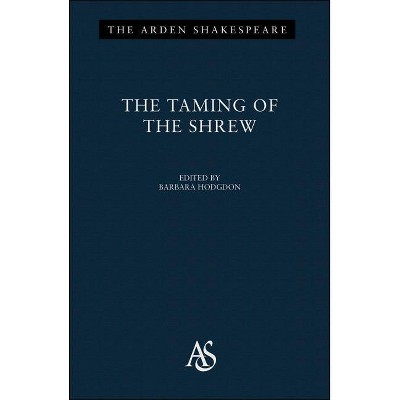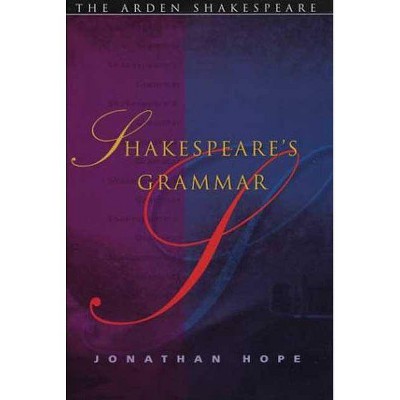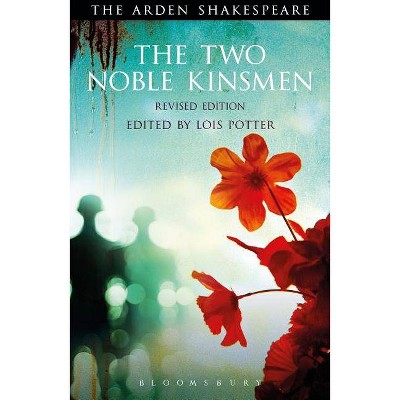The Arden Research Handbook of Shakespeare and Textual Studies - (The Arden Shakespeare Handbooks) Annotated by Lukas Erne (Hardcover)
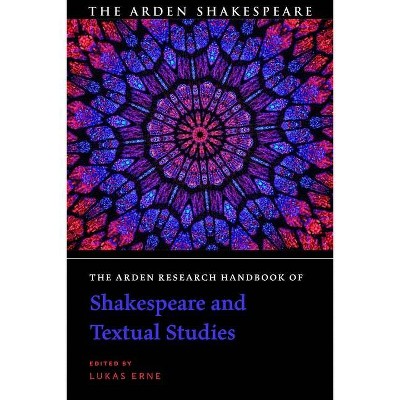
Similar Products
Products of same category from the store
AllProduct info
<p/><br></br><p><b> About the Book </b></p></br></br>"The Arden Research Handbook of Shakespeare and Textual Studies is a wide-ranging, authoritative guide to research on Shakespeare and textual studies by an international team of leading scholars. It contains chapters on all the major areas of current research, notably the Shakespeare manuscripts; the printed text and paratext in Shakespeare's early playbooks and poetry books; Shakespeare's place in the early modern book trade; Shakespeare's early readers, users, and collectors; the constitution and evolution of the Shakespeare canon from the sixteenth to the twenty-first century; Shakespeare's editors from the eighteenth to the twenty-first century; and the modern editorial reproduction of Shakespeare. The Handbook also devotes separate chapters to new directions and developments in research in the field, specifically in the areas of digital editing and of authorship attribution methodologies. In addition, the Companion contains various sections that provide non-specialists with practical help: an A-Z of key terms and concepts, a guide to research methods and problems, a chronology of major publications and events, an introduction to resources for study of the field, and a substantial annotated bibliography. The Arden Research Handbook of Shakespeare and Textual Studies is a reference work aimed at advanced undergraduate and graduate students as well as scholars and libraries, a guide to beginning or developing research in the field, an essential companion for all those interested in Shakespeare and textual studies"--<p/><br></br><p><b> Book Synopsis </b></p></br></br><i>The Arden Research Handbook of Shakespeare and Textual Studies</i> is a wide-ranging, authoritative guide to research on Shakespeare and textual studies by an international team of leading scholars. It contains chapters on all the major areas of current research, notably the Shakespeare manuscripts; the printed text and paratext in Shakespeare's early playbooks and poetry books; Shakespeare's place in the early modern book trade; Shakespeare's early readers, users, and collectors; the constitution and evolution of the Shakespeare canon from the sixteenth to the twenty-first century; Shakespeare's editors from the eighteenth to the twenty-first century; and the modern editorial reproduction of Shakespeare. <br/><br/>The Handbook also devotes separate chapters to new directions and developments in research in the field, specifically in the areas of digital editing and of authorship attribution methodologies. In addition, the Companion contains various sections that provide non-specialists with practical help: an A-Z of key terms and concepts, a guide to research methods and problems, a chronology of major publications and events, an introduction to resources for study of the field, and a substantial annotated bibliography. <br/><br/><i>The Arden Research Handbook of Shakespeare and Textual Studies</i> is a reference work aimed at advanced undergraduate and graduate students as well as scholars and libraries, a guide to beginning or developing research in the field, an essential companion for all those interested in Shakespeare and textual studies.<p/><br></br><p><b> Review Quotes </b></p></br></br><br>An indispensable resource covering both established and emergent scholarship, this volume is also an immensely practical guide to the field. Commendably too, this handbook demonstrates that profound erudition, scholarly illumination, and pioneering research can be presented as an accessible pedagogical intervention.<br><br>As Lukas Erne notes, this is a perfect moment to reflect on Shakespearean textual studies. He has assembled a genuinely international cast of the very best textual scholars for a collection that is both timely and exemplary. If you seek a precise and engaging snapshot of the current state of play in the field, you're in the right place.<br><br>If you have ever wondered exactly why colleagues become so excited about Shakespeare textual studies, Lukas Erne's <i>Research Handbook</i> will give you the answer. He has assembled an immensely impressive array of textual scholars and all of them write in a way that is both profoundly scholarly and consistently accessible. More than yet another collection of chapters, this really is a reference<b></b>guide, a how-to handbook that will make its readers as enthusiastic as its authors.<br><p/><br></br><p><b> About the Author </b></p></br></br>Lukas Erne is Professor of English at the University of Geneva. He is the author of <i>Shakespeare as Literary Dramatist</i> (2003; 2nd edition, 2013), <i>Shakespeare and the Book Trade</i> (2013), <i>Shakespeare's Modern Collaborators</i> (2008), and <i>Beyond "The Spanish Tragedy" A Study of the Works of Thomas Kyd</i> (2001). He has edited<i> The First Quarto of Romeo and Juliet</i> (2007) and <i>A Midsummer Night's Dream</i> for the <i>Norton Shakespeare</i>, 3rd edition (2015). Among the collections of essays he has edited are<i> Textual Performances: The Modern Reproduction of Shakespeare's Drama</i>, with M.J. Kidnie ( 2004) and <i>Medieval and Early Modern Authorship</i>, with Guillemette Bolens (2011). In 2012, he gave the Lyell Lectures at the University of Oxford and was the Fowler Hamilton Research Fellow at Christ Church, Oxford.
Price History
Price Archive shows prices from various stores, lets you see history and find the cheapest. There is no actual sale on the website. For all support, inquiry and suggestion messages communication@pricearchive.us
